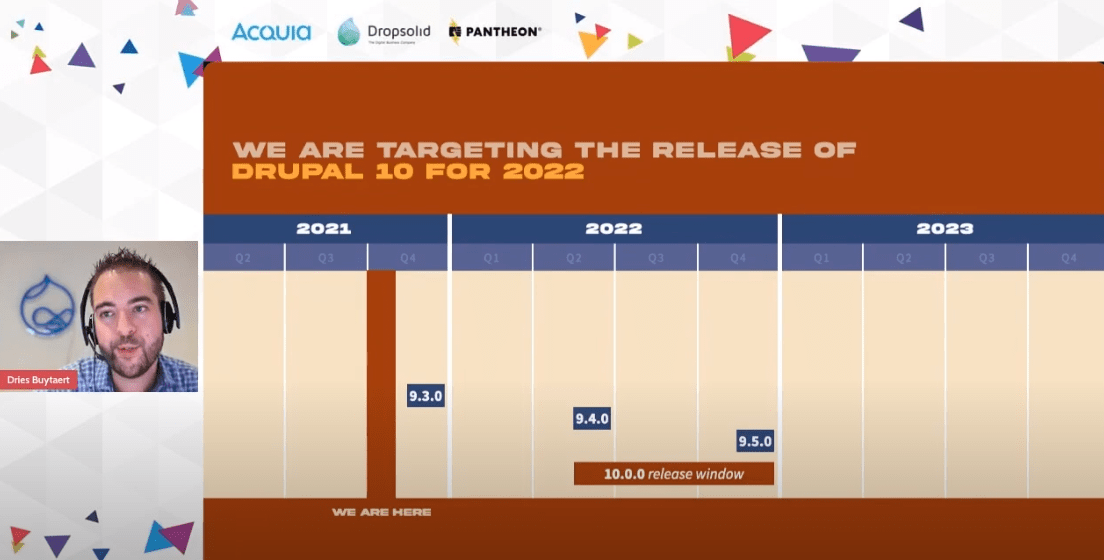How the show was done, 2021-06-14 – Tom Bruce Music https://tombrucemusic.space/2021/06/06/how-the-show-was-done-2021-06-14/
RSS Formula Hybrid 2021 – Sound Pack | RaceDepartment
RSS Formula Hybrid 2021 – Sound Pack | RaceDepartment https://www.racedepartment.com/threads/rss-formula-hybrid-2021-sound-pack.208912/
Streaming? Sweet!! | RaceDepartment
Streaming? Sweet!! | RaceDepartment https://www.racedepartment.com/threads/streaming-sweet.184114/
What’s Coming to Amazon Prime Video in December 2021
If Nicole Kidman doesn’t get an Oscar nomination for Being the Ricardos, Aaron Sorkin will have some splainin’ to do…to Jeff Bezos.
Source: What’s Coming to Amazon Prime Video in December 2021
Sitala is a free drum plugin and standalone app
Sitala is a free drum plugin and standalone app https://decomposer.de/sitala/
Drupal 8 end of life and future Drupal 10 release
Drupal 10 is coming in 2022 — discover what new features it is going to include, and what to do with Drupal 8 and Drupal 7 websites in relation to their end-of-life.
Source: Drupal 8 end of life and future Drupal 10 release
Drupal 7’s end of life is scheduled for November 2022, just one year from now. CALI is moving it’s D7 website to Drupal 9 by June 2022. I’m hoping Drupal becomes more like WordPress where major version updates are mostly point and click affairs with little or no need to rebuild a site.
Looking to build an open access repository? EPrints on Ubuntu 20.04 may be just the thing
EPrints is open-source software designed for building open access repositories that are OAI-PMH compliant. It is primarily used for scientific journals and institutional repositories although it can be also used as a document management system.
Source: How To Install EPrints on Ubuntu 20.04 | RoseHosting
Eprints is one of those systems that pops up on my radar every now and then. My favorite things about it is that it’s written in Perl and it’s still in active development. This article is general enough that it will apply to just about any hosting situation.
I’ve tinkered with EPrints and it works as advertised. I suppose if academic law libraries had more support for self hosted applications we might see it in legal academia. You can find the source on Github, more info at EPrint, and try out a demo version.
CVE-2021-22205: How to determine if a self-managed instance has been impacted
CVE-2021-22205: How to determine if a self-managed instance has been impacted https://forum.gitlab.com/t/cve-2021-22205-how-to-determine-if-a-self-managed-instance-has-been-impacted/60918
Can I create a syllabus with Node-RED?
Node-RED is a programming tool for wiring together hardware devices, APIs and online services in new and interesting ways. It provides a browser-based editor that makes it easy to wire together flows using the wide range of nodes in the palette that can be deployed to its runtime in a single-click.Node-RED
Here’s an idea: use the low code browser based flow design tools of Node-RED to create a syllabus of online resources. Since Node-RED can work with APIs and I have an API for CALI resources, I should be able to use Node-RED tools to design a syllabus as a flowchart through a series of resources.
I suspect there are a few missing pieces here like a program or routine to step through the flow created by Node-RED and a system from tracking results that talks to Node-RED. The pieces are likely buildable one identified. The result would be a programmed learning environment using Node-RED as a primary component.
Knowledge is Power: Open Access, Equity, and Cornell’s Land Grant Mission
In the context of a university such as Cornell, open access is often viewed through the lens of academic scholarship. But it can be, and is, so much more. Many Cornell programs further Cornell’s land grant mission by providing open access resources to the general public. A panel of representatives from some of these programs will discuss their work, its impacts, the importance of open access to their mission, and how they strive to make their respective fields more accessible and equitable through their work with open access projects. Moderator: Craig Newton, Co-Director, Legal Information Institute, Cornell Law Panelists: Sara Frug, Co-Director, Legal Information Institute, Cornell LawJim DelRosso, Assistant Director, Catherwood Library, ILR SchoolChristopher Wood, Managing Director, Center for Avian Population Studies and Director, eBird
Source: Knowledge is Power: Open Access, Equity, and Cornell’s Land Grant Mission


